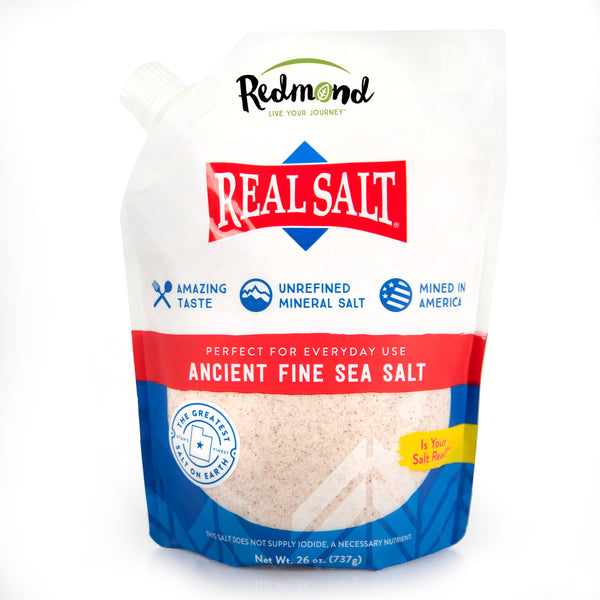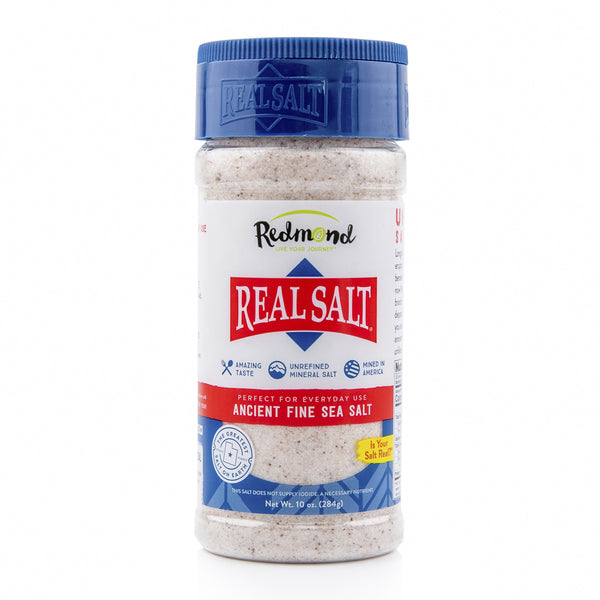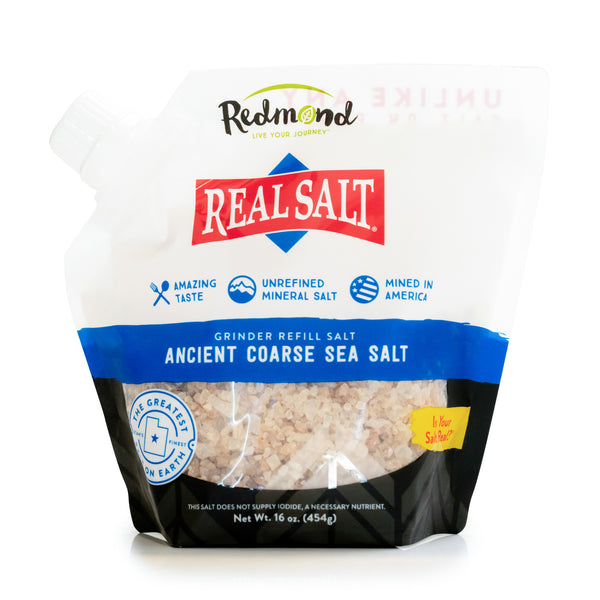Electrolyte Spotlight: What Are the Benefits of Magnesium?

Article at a Glance:
- Magnesium is a major mineral found bountifully in our bodies and needed in high quantities for us to function.
- Magnesium plays a role in hundreds of processes in our bodies and can help provide blood sugar, depression, blood pressure, sleep, and muscle support.
- Magnesium may be able to improve exercise performance by clearing lactic acid from the muscles, which improves muscle fatigue and soreness levels.
- Magnesium malate and magnesium glycinate are two of the most easily absorbed forms of magnesium.
- You can get your RDA of magnesium (310 to 420 mg) by eating magnesium-rich foods like avocados, nuts, legumes, seeds, leafy greens, bananas, fatty fish, and dark chocolate and taking supplements.
Trivia time. What’s abundantly found in our bodies, the edamame from your favorite sushi restaurant, and the earth’s crust?
Magnesium!
This healthy mineral powerhouse is responsible for over 600 bodily reactions and is the companion to more than 300 enzymes found in our bodies.
Research tells us that roughly two-thirds of the western world is not consuming the recommended amount of magnesium for their size, weight, and age— a concerning statistic considering all magnesium does for our bodies, minds, and overall health.
What is Magnesium?
Magnesium is a major mineral, similar to calcium, chloride, sodium, and potassium. Major minerals are found bountifully in our bodies and are needed in high quantities in order for us to function. Magnesium is the body’s fourth most abundant mineral, with most adult bodies containing around 25 grams.
Most of our magnesium supply— around 50-60 percent —can be found in our bones, with the remainder living in our organ cells and various tissues. It’s vital to the biochemical reactions that help everything from our nerves to our heart function.
What Are the Health Benefits of Magnesium?
“What aren’t they?” would be the easier question! Magnesium plays a role in hundreds of daily reactions and processes in our bodies. It is a lead cofactor to over 300 enzyme systems that support and regulate biochemical reactions in the body. Those reactions include:
- Protein Synthesis
- Muscle and Nerve Function
- Blood Glucose Levels
- Blood Pressure Control
- Energy Creation
- DNA and RNA Maintenance
- And much, much more.
Because magnesium is essential to a well-functioning body, we miss out on a lot of potential health benefits when we don’t get enough, like:
- Healthier blood sugar. Low magnesium levels can inhibit insulin from managing blood sugar properly, which can put you at risk for type 2 diabetes. A 2010 study found that people with the highest magnesium intake had a 47 percent lower chance of developing type 2 diabetes over a 20 year period.
- Lower levels of depression. Magnesium is essential to brain health. A 2015 study found that people with the lowest levels of magnesium were 22 percent more likely to develop depression.
- Healthier blood pressure. Research shows that magnesium supplements can have a positive impact on blood pressure in people with high blood pressure (although, it doesn’t seem to have an effect on people with normal blood pressure).
- Better sleep. Magnesium can increase levels of the neurotransmitter GABA, which could help you sleep better. Research in animals and humans shows that magnesium levels directly impact sleep quality.
- Muscle cramp support. A lot of people swear by magnesium to reduce muscle cramps. Although there's still quite a bit of conflicting research on how effective it is for this purpose, one 2002 study found that taking 300 mg of magnesium per day for six weeks led to less muscle cramps.
- Improved exercise and muscle performance. Magnesium may help prevent your muscles from getting tired and sore during exercise, which could help you perform better (check out the deets below).
How Does Magnesium Affect Exercise?
Magnesium is a primary electrolyte (alongside chloride, potassium, calcium, and sodium) and works to regulate the balance of acid-alkaline in your body. It also plays a huge role in muscle contraction, heartbeat regulation, and endurance.
Research shows that the bodily fluids lost when you perform vigorous exercise increase your magnesium needs by 10-20 percent. If you get plenty of magnesium before and after you exercise, it can help your body get rid of lactic acid, an organic acid that builds up in the muscles during exercise and causes fatigue and soreness. That may be why numerous studies show that taking magnesium supplements can improve exercise performance.
Balancing your electrolyte intake is crucial to performing at your best in exercise, and that includes getting enough magnesium. In fact, consuming too much water without replenishing your electrolyte supply can even be dangerous! Without sufficient magnesium levels, strenuous exercise is more likely to amplify oxidative stress and lead to injury.
What Are the Different Types of Magnesium?
Many different types of magnesium can be found in food and supplements, and it’s important to know the advantages of some forms of magnesium over others.
For example, the magnesium used in Re-Lyte is a 50/50 blend of magnesium malate and magnesium glycinate. We chose magnesium malate for its ability to easily absorb in the digestive tract. Some forms of magnesium have a strong laxative effect (like magnesium citrate). But magnesium malate is gentler on the system, while still delivering support to the body’s daily functions.
Magnesium glycinate is formed with an amino acid called glycine, which is used to support healthy inflammation and sleep. Some research shows that magnesium glycinate may have promising impacts on anxiety, depression, and stress due to its calming properties. It’s also easily digestible.
What Are the Signs of Magnesium Deficiency?
Magnesium deficiency can manifest in various ways depending on age, size, and gender. But most commonly, the first sign will be fatigue. Magnesium plays a pivotal role in converting food into energy, so if you’re not getting enough you will most likely feel tired and sluggish in ways that may seem unexplainable.
Other signs of magnesium deficiency include muscle weakness and stiffness, depression or lack of focus, irregular twitching, loss of appetite, and nausea. In more severe cases of magnesium deficiency, individuals might experience numbness, abnormal heartbeat, seizures, osteoporosis, or an advanced risk of type 2 diabetes.
How Do I Get Enough Magnesium?
The amount of magnesium your body needs per day varies depending on age and gender. But most adults should get between 310 and 420 mg. Magnesium is found in foods like avocados, nuts, legumes, seeds, leafy greens, bananas, fatty fish, and (our personal favorite) dark chocolate.
Health conditions like celiac disease, dairy intolerances, type 2 diabetes, and more can make it difficult to get a sufficient amount of magnesium through food intake. Supplements, mixes, and magnesium support medicines can provide an additional safe boost to daily consumption and may be good options, but everyone is different, so it’s a good idea to always check with your doctor about your individual needs.
A Simple, Healthy Way to Increase Your Magnesium Intake
Re-Lyte Hydration is our favorite way to up our daily magnesium intake — while adding other helpful nutrients like sodium, potassium, chloride, and calcium. Each serving offers 50 mg of magnesium or roughly ⅛ of the daily recommended dosage for most adults. It’s a perfect companion to a nutrient-dense diet filled with magnesium-rich foods.
Sources:
Magnesium: Fact Sheet — National Institute of Health, Office of Dietary Supplements
The Importance of Magnesium in Clinical Healthcare — National Library of Medicine
Magnesium Requirements and Dietary Sources — Very Well Fit
What is Magnesium Chloride — Very Well Health
What is Magnesium? — Academy of Nutrition and Dietetics
10 Evidence-Based Health Benefits of Magnesium —Healthline
Magnesium intake in relation to systemic inflammation, insulin resistance, and the incidence of diabetes — Diabetes Care.
Magnesium intake and depression in adults — Journal of the American Board of Family Medicine.
Randomised, cross-over, placebo controlled trial of magnesium citrate in the treatment of chronic persistent leg cramps — Medical Science Monitor.
Multifarious Beneficial Effect of Nonessential Amino Acid, Glycine: A Review — National Library of Medicine
Magnesium and Exercise — National Library of Medicine
Update on the relationship between magnesium and exercise — Magnesium Research.
Magnesium Dosage: How Much Should You Take per Day? — Healthline














